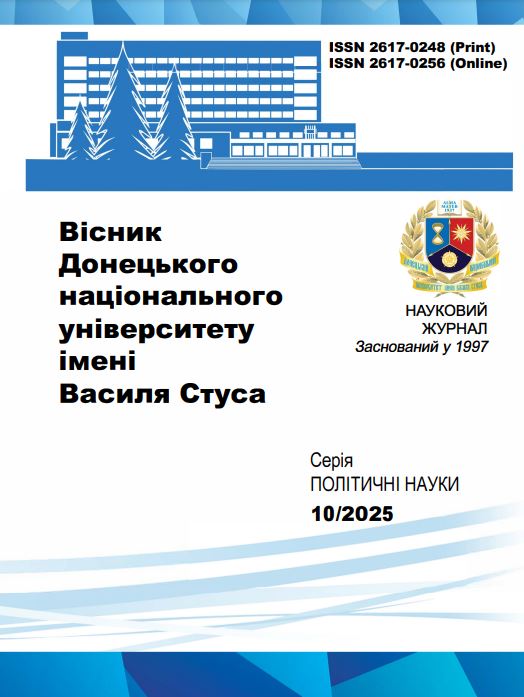Франкістська Іспанія у роки повоєнної відбудови, автаркії та «економічного націоналізму»
DOI:
https://doi.org/10.31558/2617-0248.2025.10.1Ключові слова:
франкістська Іспанія, каудильйо, автаркія, економічний націоналізм, державне регулювання, Національний інститут колонізаціїАнотація
У статті аналізується соціально-економічна політика епохи франкізму, її періодизація, особливості. Акцентується на тому, що період повоєнної відбудови, який розпочався по завершенні громадянської війни у 1939 році і тривав до кінця 1950-х років, характерний унікальною економічною стратегією, яка зводилася до автаркії та всілякої підтримки державою вітчизняного промислового та аграрного підприємництва. Вказується на причини вибору такої моделі повоєнного відбудови, які пов’язані через характер режиму з ізоляцією Іспанії на міжнародній арені. Вона не стала членом ООН та інших світових політичних та фінансових організацій, вона була позбавлена участі у плані Маршалла і отримання іноземних інвестицій. Характер економічної політики франкізму на першому етапі 1939–1959 років визначала також нова громадянська (партизанська) війна, підтримувана Москвою, яка тривала до середини 1950-х років, а також особливості попереднього капіталістичного розвитку Іспанії. Ці обставини спричинили політику автаркії, тобто опору на винятково власні ресурси. Аналізуються механізми автарктичної економічної політики, серед яких створення акціонерних компаній із переважанням державних фінансів, формування державного сектору, обмеження іноземного капіталу, існування декількох обмінних курсів песети, складання планів розвитку провідних галузей промисловості, реалізація техніко-економічних перетворень в аграрній царині (концентрація парцел, іригаційні заходи) тощо. Наприкінці 1950-х років завдання з відбудови економіки були виконані і на порядку денному постала проблема подальшого поступального економічного розвитку країни, переходу до ліберальної економічної стратегії. Це позитивно позначилися перш за все на розвитку електроенергетичної, металургійної, хімічної та цементної галузей промисловості, на видобутку корисних копалин.
Посилання
Високолян О. Відбудова України: як виглядатимуть відновлені українські міста після війни. Радіо Свобода. 2024. URL: https://www.radiosvoboda.org/a/vidbudova-ukrayiny-proyekty-vidnovleni-mista-pislya-viyny/32819772.html.
Охріменко О.О., Попов Р.О. Повоєнна відбудова України: потенціал та стратегія перетворень. Економіка та суспільство. 2022. №45 URL: https://doi.org/10.32782/2524-0072/2022-45-7 .
Fusi Juan Pablo. Franco. Spanien unter der Diktatur. 1936–1975. Madrid: Edisiones RIAZP, 2001. 238 p.
Gallo Max. Spain under Franco. New York: E.P. Dutton &Company, ins., 1974. 391 p.
Ruiz David. La Dictadura franquista. 1936-1975. Oviedo: Dopesa, 1978. 164 p.
Tamames R. La Republica. La era de Franco. Madrid: Alianza Editorial, 1976. 467 p.
Bennassar Bartolome. Franco. Madrid: EDAF, 1996. 367 p.
Payne Stanley G. El Regimen de Franco. 1936-1975. Madrid: Alianza Editorial, 1987. 682 p.
Vilar S., Cierva R. de la. Pro y contra Franco. Barcelona: Planeta, 1985. 279 p.
La Transicion democratica española. Madrid: Alianza Editorial. 1989. 957 p.
Іваницька О.П. Іспанія у ХХ-ХХІ сторіччях: монографія. Вінниця: ТОВ «Нілан-ЛТД», 2017. 600 с.

